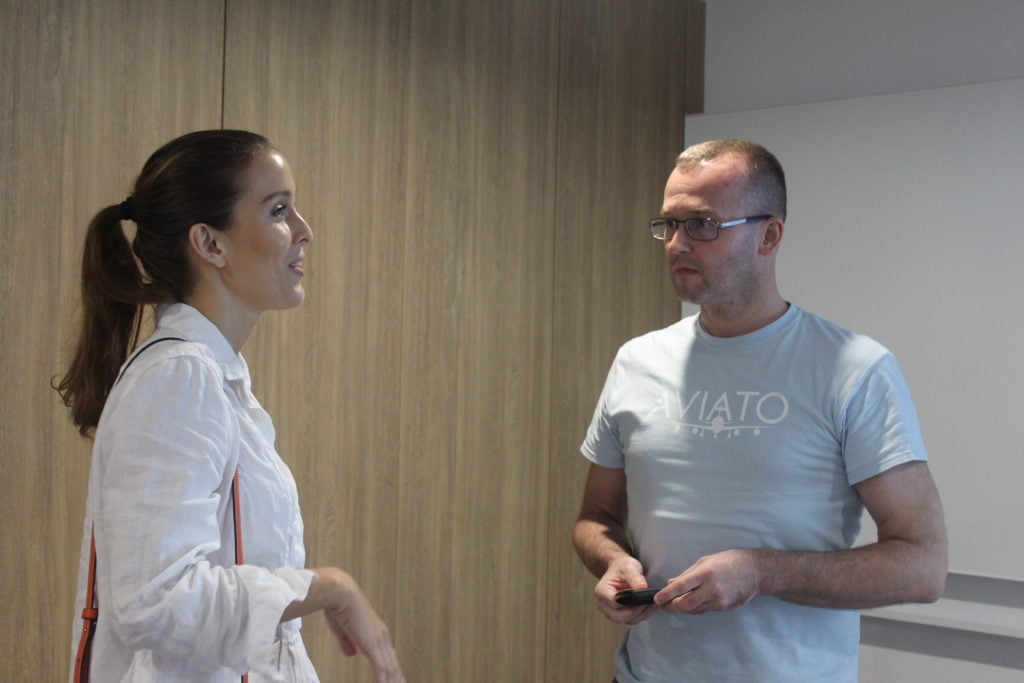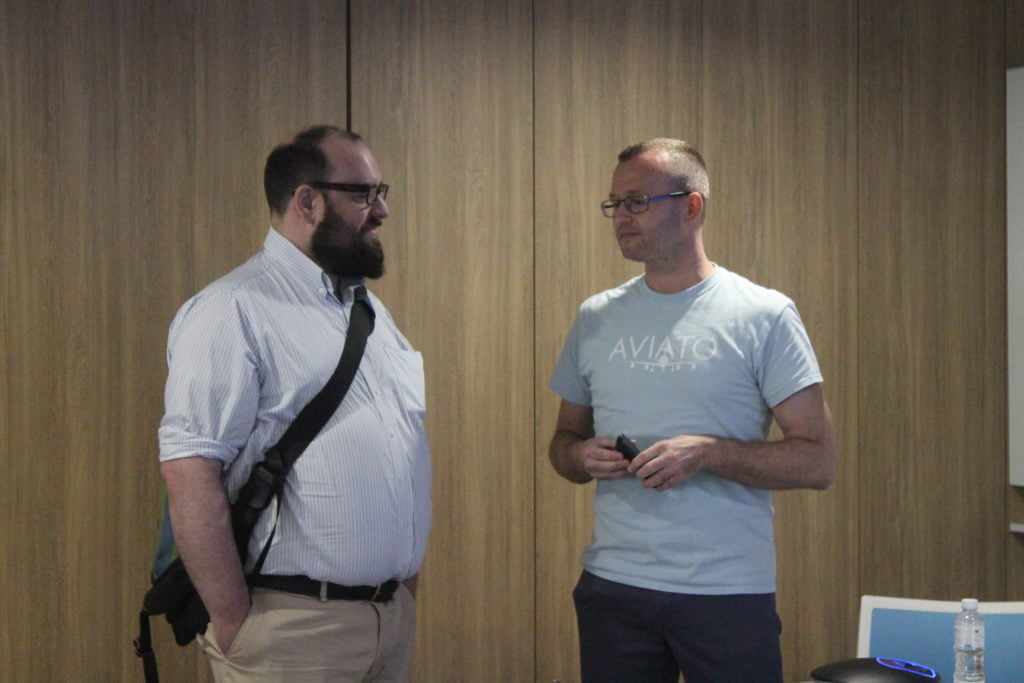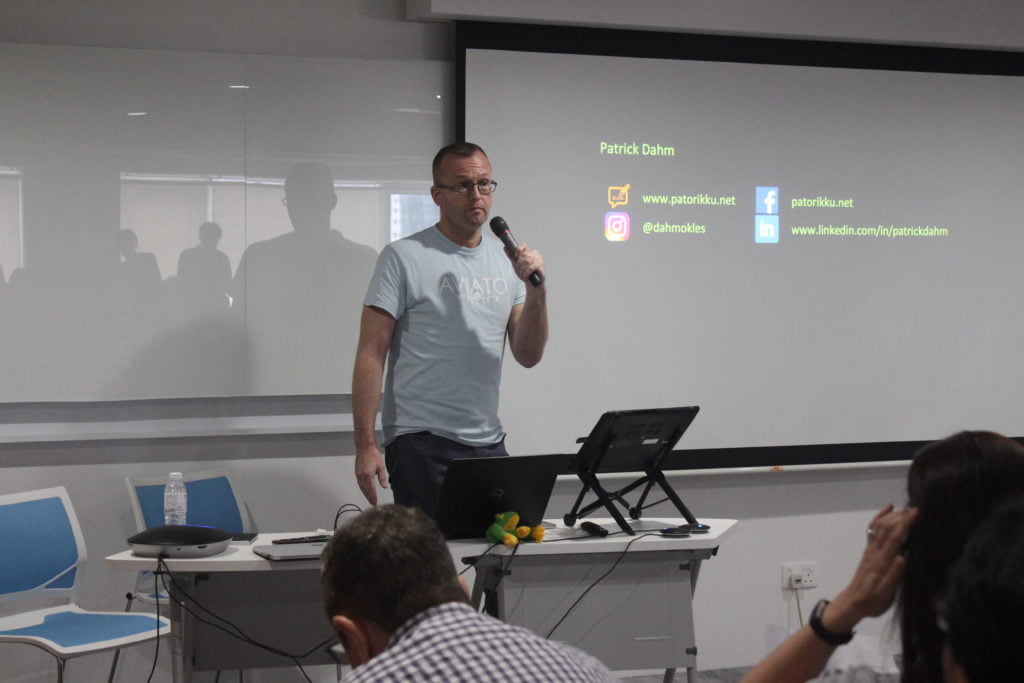Guest Post by Patrick Dahm
(Editor’s note: This article was originally published on Patrick’s blog here. We would like to thank Patrick for graciously allowing us to reproduce this article on this site for our readers.)
 This is my speech at the first Computational Law & Blockchain Festival – Singapore Node on 17 March 2018. In it, I tried to explain what initial coin offerings are, why governments all over the world eye them curiously, and how governments regulate them – if they regulate them. I also questioned why brick and mortar governments regulate something so digital.
This is my speech at the first Computational Law & Blockchain Festival – Singapore Node on 17 March 2018. In it, I tried to explain what initial coin offerings are, why governments all over the world eye them curiously, and how governments regulate them – if they regulate them. I also questioned why brick and mortar governments regulate something so digital.
Hi, I’m Patrick.
I’m a lawyer. I practise cyberlaw, as I like to call it. Although this is derived from the term cyberspace, which seems to be a bit vintage. It shouldn’t be, if you ask me.
I’m here to talk about initial coin offerings, or ICOs. I shall try to do so, and then some.
To be honest, I’m not a fan of initial coin offering as a term. Neither is the MAS, the Monetary Authority of Singapore, which doesn’t call them that. The MAS calls them digital token offerings, which is so much better.
Here’s why.
Initial Public Offerings
Initial coin offering resembles the traditional term initial public offering. An initial public offering is the first time shares of a private company are offered to the public. Think of listings on the stock exchange.
Owning listed stock means you own a part of the company. You’re a bit of an entrepreneur.
But its modern-day meaning doesn’t lie so much in making us company co-owners. It lies in the monetary value of the stock which, after the listing, is tradable on the financial market.
The same applies to other funky things you can find on the financial market. Like debentures, units in business trusts or their derivatives, or to collective investment schemes. Whatever they are. Let’s not even go there. Suffice it to say they’re all rights of one party against another party or even against the general public.
But their modern-day value doesn’t lie so much in owning these rights. It lies in their tradeability as financial assets.
Stocks and debentures, business trust units or derivatives – they’re all investment objects. Also known as securities.
IPO Regulation
And because of that governments all over the world have said: wait a minute, this is an area with huge information imbalances where, at any given stage, one party – say, the company directors who issue the rights – may know so much more than the rest – say, the potential investors. If we let this happen, those who know more may exploit their information advantage. Hugely undesirable from an economic point of view.
We must make sure, the governments said, those who know more will disclose certain information beforehand so everyone can make an informed decision. Hugely desirable, economically speaking.
And so the governments regulated the initial offering of securities to the public. Among other things they made it a duty to disclose a variety of details to potential buyers. This regulation was done by way of law. Because rule of law.
Initial Coin Offerings Token Offerings
Enter Mastercoin which, arguably, held the first ICO in 2013. They offered cryptocurrency, or coin. Ethereum and others followed. They offered coin, too.
Later offerings in the young history of ICOs were not for cryptocurrency, but for other rights. For example, as part of a crowdsale, the right to participate with privileges in an online game to be developed with the money collected.
The right to be privileged in an online game isn’t coin. In the world of information technology, the right to perform an operation is represented by a token. So when someone offers a right, she offers a token. This means all cryptocurrency are tokens, but not all tokens are cryptocurrency.
That’s why it’s a bit of a misnomer to call any token offering a coin offering. That’s why I prefer the way the MAS calls it: digital token offering.
Needless to say tokens carry value, some more, some less.
Bitcoin: hodl!
But this obscure offering where they promise you the right to meet A-list sport stars face-to-face if only you buy many tokens: maybe less.
In any case, their inherent value makes tokens tradable assets. Negatively speaking, you can lose a lot of money with them.
ITO Regulation
And that’s, of course, why the MAS has got its teeth into tokens in the first place. The MASand other regulators worldwide. Because all these new creatures, tokens, were offered unregulated. If there was any information imbalance at any stage – yeah, well, what to do.
But pretty much all regulators have found tokens have a value and are tradable. There are just different schools of thought on how to deal with it.
China has banned token trading entirely. South Korea has banned it, too, but on second thought has started reversing this ban. On the other end of the spectrum is Japan. Not only does Japan allow token trading. It has even enacted laws which accept virtual currency as payment. In Japan cryptocurrency is money. The European Union or Singapore are somewhere in the middle.
This means: if you want to offer tokens to the public, whether you call it ICO, ITO or even IPO, then you may want to check out where you offer them. If it’s in China, you won’t be allowed to do it. If you’re in Japan, you will be allowed to do it very much.

In Singapore
If you’re in Singapore, it depends on the tokens you want to offer. The MAS’ view on it is still pretty new, they’ve only published it last November. They don’t say it like that, but basically the MAS has taken a look at all the tokens out there. Then it has categorised them in three groups.
Cryptocurrency
First category. On tokens which are cryptocurrency the MAS has found: their value may rise or fall. This may attract those who treat them as an investment object. Just like some people invest in traditional currency for the same reason. But just like any traditional currency, the main purpose of cryptocurrency is to be a medium of exchange. A payment method.
The only currency we regulate as a payment method is the Singapore dollar. We do not regulate other currency as such.
Of course, if anyone uses cryptocurrency fraudulently, our general rules shall apply, including our criminal law. And let’s never forget our rules against money laundering and terrorism financing.
Utility Tokens
Second category. On this kind of token the MAS has found: their main purpose seems to be that of an entry ticket to something. They’re also called utility tokens. Yes, this may attract those who buy these tokens because they hope to sell them on with a profit. Like the guy who buys a ticket to the concert of a famous singer only to sell it on right before the show. But their main function is not to be a tradable asset.
Our rules against conning others or against money laundering and terrorism financing notwithstanding, but when a token represents the right to participate in an online game, this is nothing we regulate.
Capital Market Products
Third category, capital market products. On this third category of tokens the MAS has found: the main purpose of these tokens seems to be that of an investment. Granted, they may make their buyer a co-owner or creditor of a company. But ownership in a company or being in some other relationship with a company is really not why you buy these tokens. Rather, you buy them with a reasonable expectation of profit based significantly on the efforts of the entrepreneurs or managers who run the company.
This is just like traditional securities. Tokens in this category are securities.
We regulate securities.
Thus, if you’re in Singapore, you’re allowed to offer your tokens licence-free if your token offering is really an ICO. That is to say an offering for cryptocurrency. Or if your token is a utility token. But if the tokens you want to offer are a capital market product, then that’s regulated. Then you may have to comply with the highest standards of disclosure.
The Prospectus Requirement
This means your offer may have to be made in or be accompanied by a prospectus. This is a formal document which you will have to prepare and lodge and register with the MAS. It’s full of compulsory statements, and believe me, the average token whitepaper you see out there doesn’t cut it.
There are exemptions from the prospectus requirements. For example for small offers of securities worth less than five million Singapore dollars. Or for private placement offers made to no more than 50 persons. Or for offers made to institutional or accredited investors only.
Also, the MAS has the power to exempt a person from having to fulfil some or all prospectus requirements on a case-by-case basis. But this may happen only if the cost of compliance outweighs the need of the public for protection. And if dispensing isn’t prejudicial to the public interest.
In any case, all these exemptions come for a limited period of time or with other conditions, including advertising restrictions.
The Sandbox
For the sake of completeness I’d like to mention the sandbox. I don’t know if you’ve heard of it. The MAS offers a so-called regulatory sandbox for financial services. In the sandbox, legal and regulatory requirements are relaxed for a while. Companies admitted can experiment there.
But the MAS will only admit you to the sandbox to experiment with new or emerging technology, or with existing technology in a new way, or with a new financial service which addresses a problem or brings benefit.
At the moment there’s no one in the sandbox experimenting with token offerings. But the MAS seems to be keen. It has stated it would consider admitting token offerings, if such fundraising efforts were by companies focused on new technology that will improve the efficiency of capital markets. For example, something that can build a ‘smarter’ initial public offering. Whatever this is.
However, you don’t enter the sandbox easily. You have to apply and you have to be accepted. To be accepted you must demonstrate you’re willing and able to deploy your financial service in Singapore when play time is over. You will have to define test scenarios and expected outcomes and report on them to the MAS. Among other things.
Hence, no one should expect to be admitted to the sandbox just because they do something with token in it.

Questions
Put another way, offering securities, digital or not, is a stiff job, in Singapore or elsewhere. Because of regulatory compliance.
But we know now what kind of token is regulated in the first place and what kind of token isn’t. That’s settled then.
But, you see, I’ve highlighted the situation in Singapore. What about other places?
Yeah, about that. I have a few questions there.
Why Regulate?
First, a quick repeater. Why regulate the offering of securities again?
Okay, trivial. Any textbook on economics has it. Regulation of behaviour exists, mainly, to protect the interests of certain market participants. The offering of securities is regulated to protect worthy potential investors from getting fleeced. The information imbalance thing I’ve mentioned at the beginning. It’s economically undesirable.
Why the State?
Another question. Why regulation of security tokens by the state?
You don’t hear this one so often. That’s probably because, normally, there doesn’t seem to be a reason to ask. I mean, who else, right?
Traditionally, regulation is a service provided by the state to the citizenry. This makes perfect sense in a setting where the state is the first-choice regulator of things in our lives.
But where is there such a setting? And where is there not?
We are many in the confined space on this planet. We live in societies. Due to certain benefits that we see in it many of these societies are constituted as states. As part of our social contracts, we as individuals surrender some of our freedoms to the state. In exchange the state is to protect us. For example by way of regulation.
Where There’s a Limit, There’s a State
But regulation by the state has limits. The state is our provider of regulatory services only within its territory. As soon as we reach the borders, the state meets its limits to regulate.
In the era of globalisation, this happens really often. This is why states have come up with supranational and intergovernmental organisations and policies. Cue Irene, who’s going to speak about the UNCITRAL Model Law on Electronic Transferable Records later. UNCITRAL is the United Nations Commission on International Trade Law. It’s one of these intergovernmental organisations.
However, globalisation still refers to borders in physical space or how to overcome them.
The regulation of security tokens though.
Where There’s No Limit…
Tokens are inherently cyber. Not only that, their main area of application is that limitless, incorporeal space which we’ve created and started to inhabit a while ago: cyberspace.
State territory is physical whereas cyberspace is not. We have started to inhabit cyberspace with the software part of what makes us up. But we have not stopped inhabiting physical space with our physical bodies. We just do both.
There is a fairly distinct border between these two spaces, yet many of us do not realise it well. Perhaps because it runs right through us and we cross it all the time. As a consequence, we tend to obliterate the differences between both physical space and cyberspace.
I daresay states obliterate these differences a lot. For example, they tend to forget where the social contract grants them power and authority and where it doesn’t.
Regulating Remote Areas
Although traditionally they regulate what happens in their territory, states have sought to regulate behaviour in cyberspace, too. But come to think of it what they really do is regulate behaviour in their territory. Because they can’t go beyond that.
In forbidding token trading, China regulates behaviour in China space. In allowing token trading, Japan regulates behaviour in Japan space. And in applying certain brick-and-mortar rules made for traditional securities on security tokens, Singapore regulates behaviour in Singapore space.
Supranational bodies like the European Union may go beyond that and regulate behaviour in European Union space. But that’s because its members are states which allow that.
As of today, there is no cyber state. There’s also no cyber United Nations or cyber European Union. This is why any effect of state regulation on cyberspace is but indirect.
Of course many (perhaps all) laws have, wanted or unwanted, indirect effects. But indirect effects are usually side effects. I daresay the direct effects of law are usually its main effects. But when it comes to regulating behaviour in cyberspace by states, there’s nothing but indirect effect.
As a result, to me the indirect regulation of behaviour in cyberspace by physical-space states smells like a compromise. Like a workaround, until there’s something better. Like a colonial master who insists his home laws shall apply to his colonies far away, as outlandish as the results may be.
Then Who? or What? Why Law?
As we continue to develop tokens, the blockchain technology to register them, or the smart contracts to trade them, maybe we should reflect on who – or what – could be a direct regulator of token offerings in cyberspace?
Who said regulation must be done by way of law anyway, especially by public law? Yes, it’s a great way of regulating in physical space. But in the cyberspace of today, isn’t code the more appropriate way of doing it? If so, we may want to make sure our coders are good regulators. Like we want our lawmakers to be good regulators.
Of course this leads to the greater question of who could be a better regulator of life in cyberspace in general.
Is it anyone’s own business to protect himself? Or as we spend more and more time there, is it better to delegate regulation to some entity in exchange for protection? Some form of cyber social contract?
Perhaps, due to the infinity of cyberspace, there will be no cyber states with limited territory and all that. If so, who else might be our social contract partner? Facebook or Google?
Really?
Or will there be some novel form of cyber state? With some kind of cyber government?
Call me coo-coo, but I don’t think it’s too early to ask. Because, look, with cryptocurrency and digital securities we have money and investment for cyberspace now. And the emergence of money and investment is a token of civilisation.
Thank you.

The video of the talk is here.
